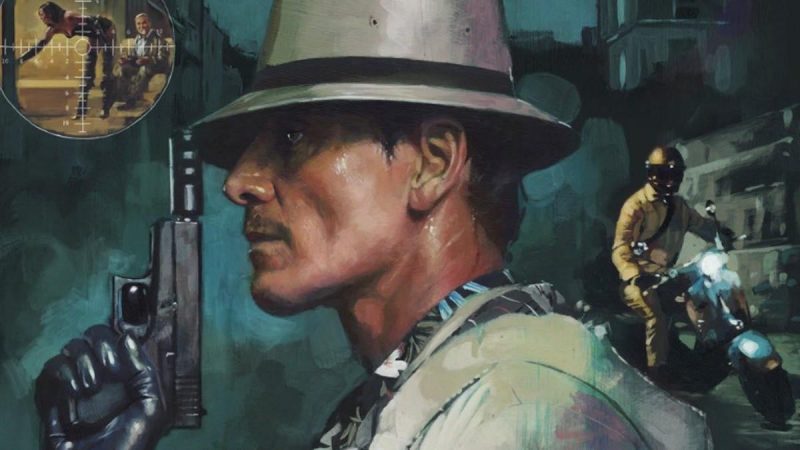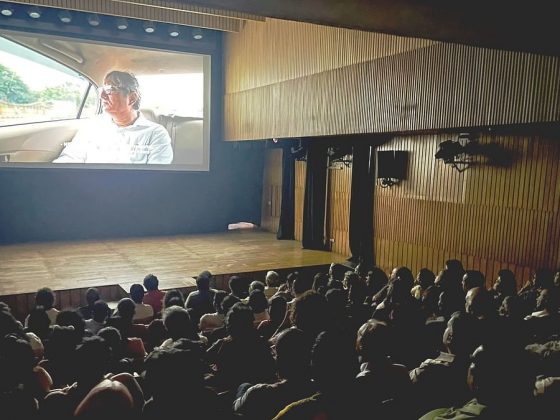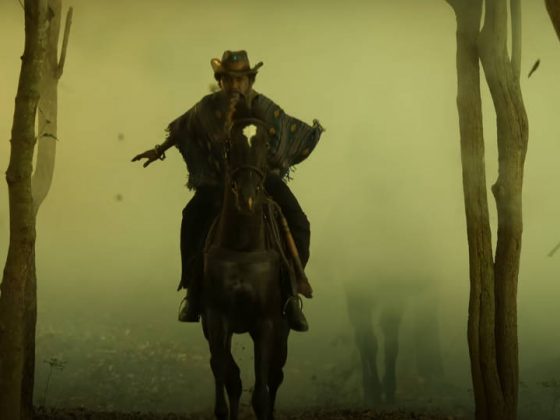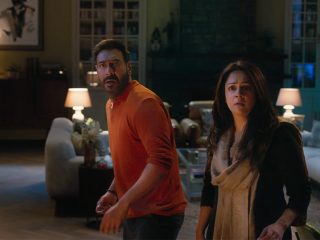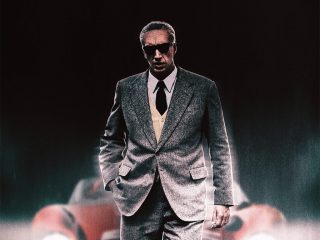It is fascinating to me while watching the auteurs and great directors like Martin Scorcese, Quentin Tarantino, David Fincher, and the like, whose movies are seminal and shape my experiences and engagement with media, to ponder as to how these people are able to make less-than-stellar movies. The question isn’t without flaws, I understand, because filmmakers are ultimately human beings, and human beings, if anything, are imperfect. But it’s fascinating to watch those imperfect movies by these auteurs and identify exactly how or where they went wrong and connect it with the filmmaker’s style and what he had chosen to focus on.
“The Killer”, the adaptation of the French comic of the same name by Matz and illustrator Jacamon, follows a hitman, “The Killer” (Michael Fassbender), clearly one who comes with the highest of recommendations and who is very much blunted by the horrors and mundanities of life. Treating this job of ruthlessly taking the lives of people with the same professional respect as one would expect an electrician to connect a light bulb There is a pattern to this man’s movements, a routine to follow, and if left to his devices, which the movie chooses to do, the man is providing avuncular advice to the viewers on how to go about taking on the job of a hitman with the utmost seriousness. “Learn to improvise, never anticipate”, or avoid empathy, as the killer drones in a laconic tone as the physicality of Michael Fassbender allows him to exercise, stretch, and sleep like a cat, all the while waiting for his target to appear in his crosshairs. This is when he would aim, fire, and, once the work was done, walk away, dressed like an unapproachable German tourist.
Only here’s the problem: The pattern breaks because he misses, and now because of that, the client who had hired him through his employer chooses to attack his hideout. The Killer thus starts on a journey that is personal, even though he wouldn’t want to admit it.
There is a sense of self-reflection to the film here, a wry commentary Fincher is making on his striving towards perfection. How he chooses to take the umpteenth amount of takes over and over again, and thus the voiceover feels like Fincher acknowledging his own idiosyncrasies. Perhaps that is why his latest, other than his interest in the genre, feels like autofiction at times.
Now it is not necessary for the admission of the flaw of an unapproachable protagonist to be direct. Hardly so. Fincher chooses to go as Fincher does, breaking it down to the fundamentals. Choose the method, focus on the process, and let Fassbender’s voiceover explain what it is doing and what his commentary is on cities like New Orleans or Florida. All the while, he dresses up like a garbageman and enters his lawyers’ office, or he chooses to fly from one location to another through the use of his innumerable air miles. His aliases are all names of sitcom characters; his soundtrack is The Smiths, with Morrisey’s voice moving either to full blast or a low hum.
It’s incidental to the details, and in the case of neo-noirs with grounded tendencies, these details work to give the movie texture. But the movie is also episodic, and as “The Killer” moves with the agility of a jungle cat, explaining the steps to enter a suburban house by drugging the dog outside, you enjoy it but realise something is off.
Perfection is a great phenomenon to strive for and an ideal to reach. Sustained perfection, though, becomes boring as a story format. It’s like the guitar solo in Eagles’ Hotel California after the vocals proclaim that you can never leave the hotel. Imagine now that the guitar solo is kept under the loop for over an hour rather than the entire song. It is a high point, yes, but if you focus only on the guitar solo, you miss the entire journey of the song. Amidst the distortion, you miss the lyrics, you miss the snares of the drum, and you miss the overall feel of a true rock and roll masterpiece.
For “The Killer”, Fincher reunites with “Se7en” scribe Andrew Kevin Walker to produce a laconic and dry sense of humour, with Fassbender’s character commenting on a world so dedicated to the completion of materialistic tendencies or the unique aspects of different ends of the United States, be it New Orleans’ lack of variety in the palette or Florida’s unique worldview. One can be intentionally ignorant of the swipe towards WeWork, but its jokes are well-placed. Its undercurrent of humour is based on a theoretical tone of fatalism. I say theory because there isn’t any fatalism here.
The Killer is an extremely capable individual, and thus when obstacles occur to break his pattern, it stands to reason that the stakes facing these extremely capable men should match them stride for stride. Other than a very expertly designed fight sequence in a suburban house, there isn’t much in the vein of stakes. One might argue that Fincher is homaging “Le Samourai” here, but to that end, I would say that the depiction of “The Killer” isn’t stoic as much as boring, delved in too much narcissism, and too much in love with the sound of his voice. The only time the movie again shows a true moment of spark is in the conversation between the killer and the Q-tip-looking assassin played by Tilda Swinton. Swinton brings such radiant and almost screwball energy to that conversation that it automatically raises interest. It’s a separate worldview from the protagonists, from which we might be able to understand his conflict or his rage.
The formalism here is on point. The style of his filmmaking, the editing, the match cuts, and the structuring are gorgeous. Each section and each moment objectively feel like the expertly crafted gear of a watch. But it’s like you are looking at the sausage being made but forgetting to evoke the effect a well-made sausage has on the tastebuds. The shades of humour are like garnishing. There is a funny movie here, amidst all of the mirthlessness in the proceedings, and Fincher could have easily leaned into the absurdity of such a systematic nature and the corporatization of assassination.
As it stands, “The Killer” is a stylistic exercise carried out by Michael Fassbender, who makes this film endlessly watchable. Like all of Fincher’s outings, this is interesting; it invites me to rewatch. But sometimes I am in the mood for listening to the whole of Protishead’s’ Glory rather than just the moment when the guitar riff transitions off-key to the drum solo.
The Killer is now streaming on Netflix.

